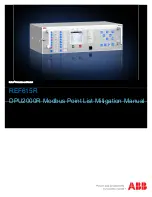
80
Chapter 2
Introduction to SNAplus2
SNAplus2 Components
Refer to the HP-UX SNAplus2 3270/3179G Users Guide for information
about using the 3270 emulation software to communicate with a host.
For more information about configuring support for 3270 emulation, see
Chapter 8, “Configuring User Applications.”
5250 Emulation
Using 5250 emulation software, you can log on to and use AS/400
systems from your computer. You can use emulation software to control
display and printer emulation sessions and to transfer files between the
local computer and the AS/400. 5250 emulation uses the node's LU type
6.2 resources.
NOTE
SNAplus2 does not provide a 5250 emulation program; it just provides
support for third party 5250 emulation software.
To use 5250 emulation with SNAplus2, you need to define the 5250 users
on your system. 5250 users are defined as domain resources, which
simplifies the configuration required to support emulation across the
domain.
Depending on the requirements of the 5250 emulation program you use,
you may need to configure the emulation program with additional
information.
For more information about configuring support for 5250 emulation, see
Chapter 8, “Configuring User Applications.”
RJE Workstation Daemon
SNAplus2 provides support for remote job entry (RJE), enabling you to
submit jobs to a host computer for processing. The RJE workstation
daemon is the SNAplus2 component that handles transfer of jobs to the
host, and also handles the output returned from the host.
You can prepare jobs for submission to the host and add them to the
queue for an RJE workstation at any time, regardless of whether the
RJE workstation is running. When the workstation runs, it submits any
outstanding jobs to the host (in the order in which they were submitted).
It also routes any output received from the host to the appropriate
destination, as determined by the configuration.
The RJE workstation uses the node's LU type 0–3 resources. In addition,
you need to define (as domain resources) the RJE workstations on your
system.
Summary of Contents for HP-UX SNAplus2
Page 4: ...4 ...
Page 14: ...14 Contents ...
Page 22: ...22 ...
Page 23: ...23 1 SNA Terms and Concepts ...
Page 65: ...65 2 Introduction to SNAplus2 ...
Page 107: ...107 3 Administering SNAplus2 ...
Page 132: ...132 Chapter3 Administering SNAplus2 Using the Command Line Administration Program ...
Page 133: ...133 4 Basic Configuration Tasks ...
Page 142: ...142 Chapter4 Basic Configuration Tasks Configuring Logging ...
Page 143: ...143 5 Defining Connectivity Components ...
Page 167: ...167 6 Configuring Dependent LUs ...
Page 174: ...174 Chapter6 Configuring Dependent LUs Defining LU Pools ...
Page 175: ...175 7 Configuring APPC Communication ...
Page 208: ...208 Chapter7 Configuring APPC Communication Configuring APPC Security ...
Page 209: ...209 8 Configuring User Applications ...
Page 222: ...222 Chapter8 Configuring User Applications Configuring RJE Workstations ...
Page 223: ...223 9 Configuring Passthrough Services ...
Page 235: ...235 10 Managing SNAplus2 from NetView ...
Page 248: ...248 Chapter10 Managing SNAplus2 from NetView Using UCF ...
Page 249: ...249 11 Managing SNAplus2 Clients ...
Page 300: ...300 Chapter11 Managing SNAplus2 Clients Managing HP UX Clients ...
Page 301: ...301 A Configuration Planning Worksheets ...
Page 337: ...337 B APPN Network Management Using the Simple Network Management Protocol ...
Page 343: ...343 C Configuring an Invokable TP Using snaptpinstall ...
Page 353: ...353 D Using SNAplus2 in a High Availability Environment ...
















































